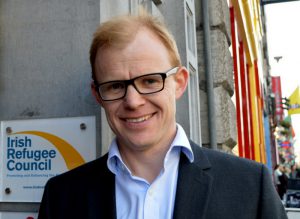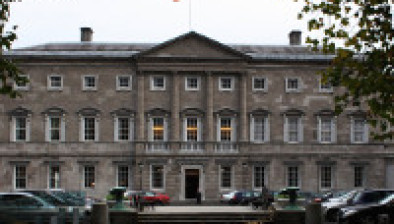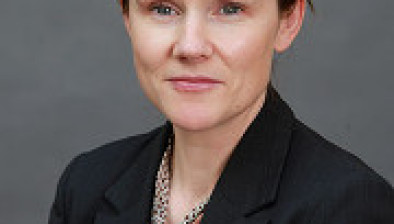Asylum plans branded ‘unnecessary and punitive’

Nick Henderson
More than half of the new government’s commitments on asylum are “restrictive” and many appear to be “unnecessary and punitive”, the Irish Refugee Council has said.
The NGO issued a statement in response to the draft programme for government agreed by Fianna Fáil, Fine Gael and independent TDs, which includes 49 commitments on international protection.
Nick Henderson, CEO of the Irish Refugee Council, said: “We wish the new government well and look forward to working collaboratively and constructively with the new ministers and civil servants to address challenges faced by people seeking protection and refugees.
“This government will oversee one of the most significant overhauls of protection policy in years, through the implementation of the Pact on Migration and Asylum. It has a significant opportunity to shape a protection process that supports people and communities and meets our human rights obligations.”
He said the draft document “includes some welcome commitments around integration, investing in more State-owned centres, staffing and providing emergency accommodation to everyone and meeting the information needs of communities”.
However, he said the charity is concerned that 26 of the 49 commitments on international protection appear to be “restrictive”.
Mr Henderson said: “A focus on restrictive measures will not solve long-standing issues in the international protection process. Multiple statements around deterrence should not be equated with a set of policies that proactively managed this issue.”
He highlighted the commitment that applicants are provided with accommodation with restrictions on their freedom of movement and requesting contributions towards accommodation costs.
“Recent research show that people are living in, or at risk of, poverty, in accommodation centres which are failing to meet basic needs and that people who are working are often in precarious employment,” he said.
“These commitments appear unnecessary and punitive, and it is not immediately clear how they comply with current law.
“In contrast, there are only two mentions of supporting people in need of protection and no mentions of human rights obligations in the context of this issue.”
He also noted that there are currently 3,220 international protection applicants without accommodation and the programme for government makes “no mention of this issue and how it can be resolved”.
“While a commitment to reduce the use of hotels for accommodating people seeking protection and to use State lands to develop appropriate State-owned facilities is welcome, this will need significant detail, development and investment,” he said.
“The new government does not start with a blank slate.
“A significant omission is also any mention of a policy to support refugees from Ukraine who are here on temporary protection, including whether the accommodation recognition payment will be continued. Temporary protection will continue until March 2026.
“There is also no mention of the international protection child payment. This was promised by the government and has received allocations in budgets 2024 and 2025 but not drawn down and implemented. It was described as, and remains, a crucial measure to prevent child poverty.”











